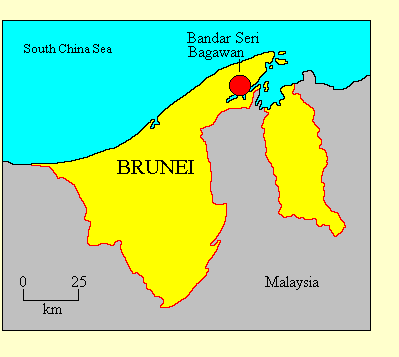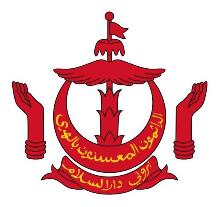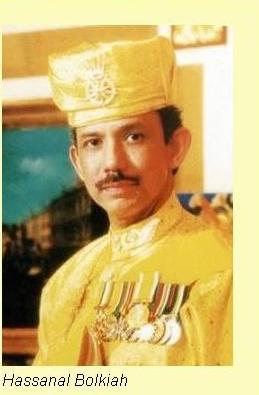

STATE OF BRUNEI
• Official name: Negara Brunei Darussalam (State of Brunei Home of Peace). The
country is commonly called Brunei.
• Location: South-East Asia
• International organisations: Asia-Pacific Economic Cooperation Forum, Association of South-East Asian
Nations, Commonwealth of Nations, Non-Aligned Movement, Organisation of Islamic Conference, United
Nations, World Trade Organisation
• Borders: Malaysia
• Coastline: South China Sea
• Land area: 5,770 Km2
• Population: 400,000
• Annual GDP (PPP) per capita: US$50,100 (2009 CIA estimate). World ranking: 7
• Ethnicity: Bruneian Malays 67%, Chinese 15%, indigenous 6%, others (mainly Malaysians,
Indians and Europeans) 12%
• Languages: The official language is Brunei, a local variant of Malay, which spoken as
a first language by 70% of the population. About 15% speak Chinese languages and 5%
speak English. Most of the remainder speak indigenous languages.
• Religion: Sunni Islam is the state religion and is the religion of 70% of the
population. Minority religions include Buddhist (13%) and Christian (10%).
• Form of government: Absolute monarchy. Brunei is divided into four districts.
• Capital: Bandar Seri Begawan
• Constitution: None. The 1959 Constitution has been suspended since 1962.
• Head of state: The Sultan and Yang Di-Pertuan,
Hassanal Bolkiah Mu'izzaddin Waddaulah,
assumed power on 5 October 1967.
• Head of government: The Sultan, who acts as his own Prime Minister and appoints all
ministers.
• Legislature: Brunei has no legislature. The Sultan is intermittently advised by a body
which is (rather misleadingly) called the Legislative Council (Majlis Masyuarat Megeri). The Council
has 29 members, of which 15 are indirectly elected by village councils and the rest appointed by the
Sultan. It has no legislative functions.
• Electoral authority: None
• Freedom House 2011 rating: Political Rights 6, Civil Liberties 5
• Transparency International Corruption Index: 55% (38 of 178 countries rated)
• Reporters Without Borders Press Freedom 2010 Index: 49.0% (142 of 178 countries rated)
• Heritage Foundation Economic Freedom 2010 Index: no rating given

Political history
Brunei has been an independent Islamic Sultanate since the 15th century. Until the 19th century it
held at least nominal sovereignty over most of Borneo and parts of the Philipines. The
British began to encroach on its territories in the 1840s and in 1888 the Sultan was
forced to accept a British protectorate. Brunei would probably have become part of
Malaysia along with its neighbours Sabah and Sarawak had not the discovery of oil given
the Sultan enormous wealth and the power to remain independent. Brunei was reluctant
to allow the British to depart but eventually became independent in 1984.
In 1959 Sultan Omar Ali Saifuddin granted a constitution, but this was suspended
in 1962 when the leftist Brunei People's Party won all the
elected seats in the legislature. The constitution has never been reactivated. Omar abdicated in 1967 and
his son, Hassanal, has ruled as an absolute monarch ever since.
No opposition is tolerated but Brunei's enormous oil wealth has created a high standard
of living and little overt opposition exists.
Freedom House's 2011
report on Brunei
says: "Brunei is not an electoral democracy. The sultan wields broad powers under a long-standing state
of emergency, and no direct legislative elections have been held since 1962... The reform efforts of
Sultan Hassanal Bolkiah Mu'izzaddin Waddaulah have been largely superficial and are designed to attract
foreign investment. The unicameral Legislative Council has no political standing independent of the sultan...
The government claims to have a zero-tolerance policy on corruption, and its Anti-Corruption Bureau has made
efforts to cooperate with regional partners and the Ministry of Education in recent years...
Journalists in Brunei face considerable restrictions... Emergency laws continue to restrict freedom of assembly...
The constitution does not provide for an independent judiciary. Although the courts generally appear to act
independently, they have yet to be tested in political cases."
Updated October 2011
|

